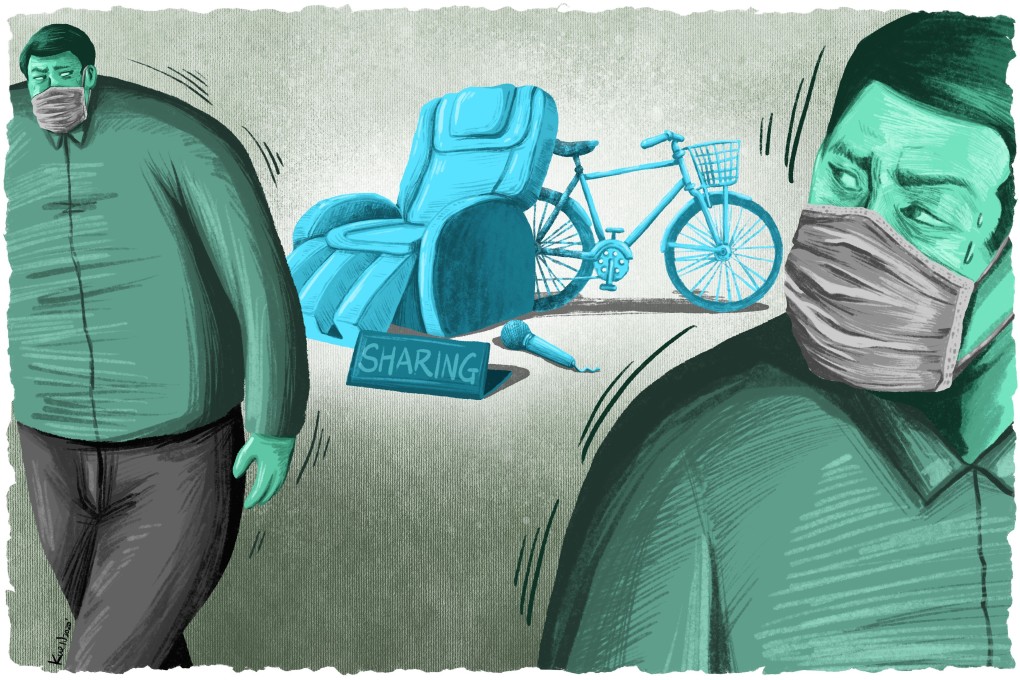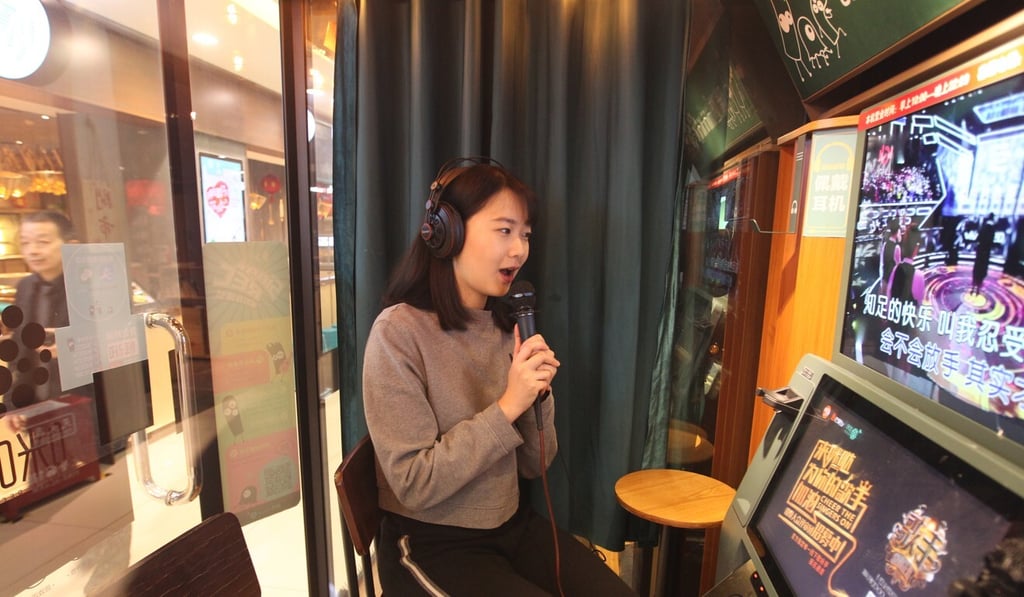Coronavirus: No more shared karaoke booths and massage chairs in China as Covid-19 takes the shine off sharing economy
- The sharing economy was once seen as an indelible part of China’s future - but Covid-19 has changed that perception
- Now that the spread of the novel coronavirus has been contained, the government has been taking steps to revive consumption

This is the ninth in a series on the impact of the coronavirus on China’s technology sector
Not so long ago, the shared karaoke booths next to the Shenzhen restaurant where Liu Lijuan works were packed at the weekend with young people looking to blow off some steam after working long shifts in China’s southern tech heartland.
By scanning a QR code on the door, the tiny booths allowed groups of friends to enter and sing their favourite songs together for a few hours. But times have changed since the Covid-19 pandemic.
“They’ve been empty most of the time since February,” said Liu, a 28-year-old cashier at a restaurant near Shenzhen North Railway Station. “I wouldn’t use them either. The mic, the screen, the chairs – who knows who has touched them before, no one wants to touch anything that could possibly infect them.”
The sharing economy was once seen as an indelible part of China’s future. For many of the younger generation, owning a house, a car or even a bike was not seen as a prerequisite for everyday life – why buy when you can rent? And as such, many turned to the likes of home-sharing platform Airbnb, ride-hailing giant Didi Chuxing and bike rental firm Mobike.
In 2019 China’s sharing economy was estimated to be worth 3.28 trillion yuan (US$460 billion) with around 800 million users and employees and 78 million service providers involved, according to China’s 2020 Sharing Economy Development Report published by the National Information Center in March.
